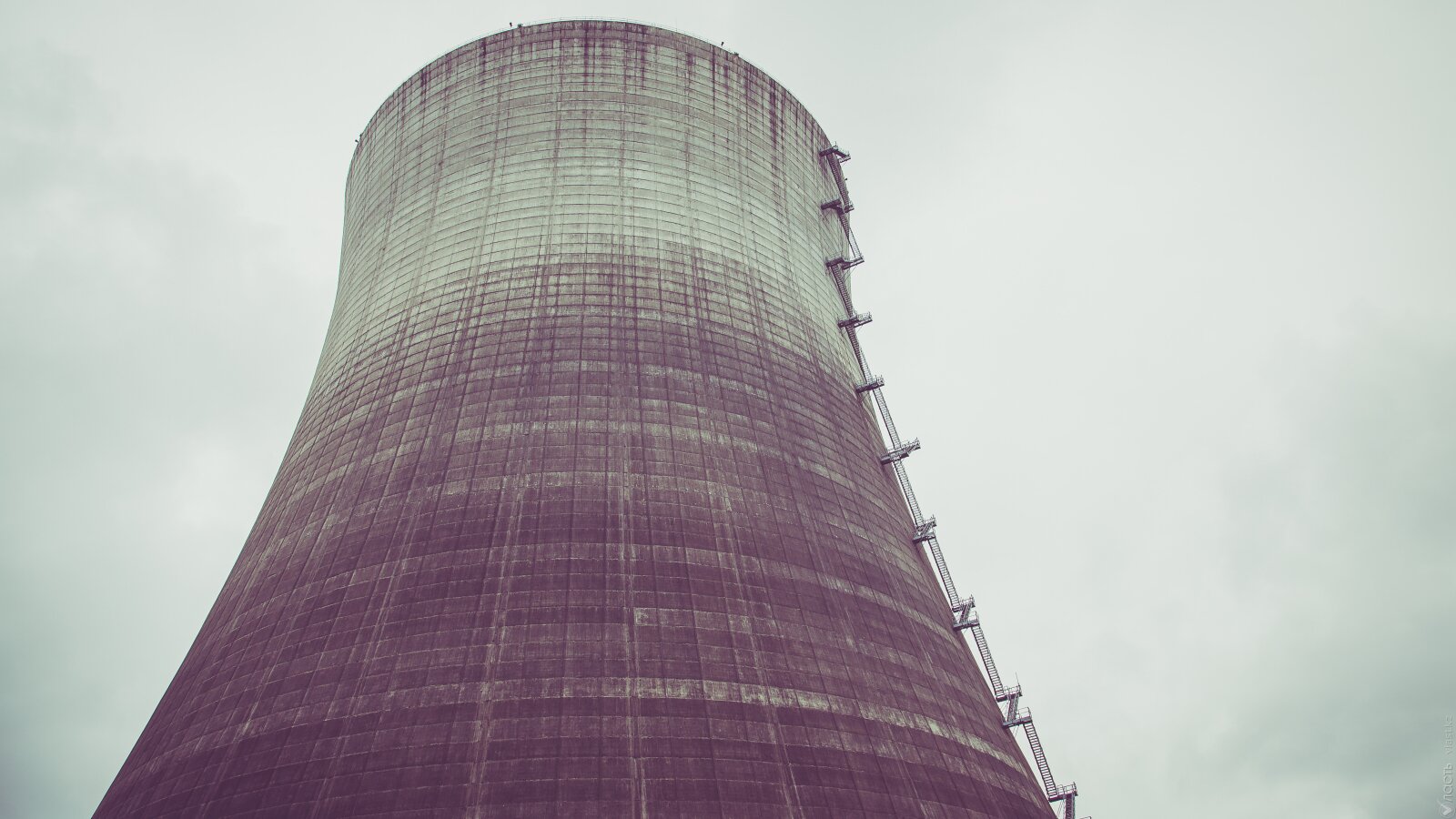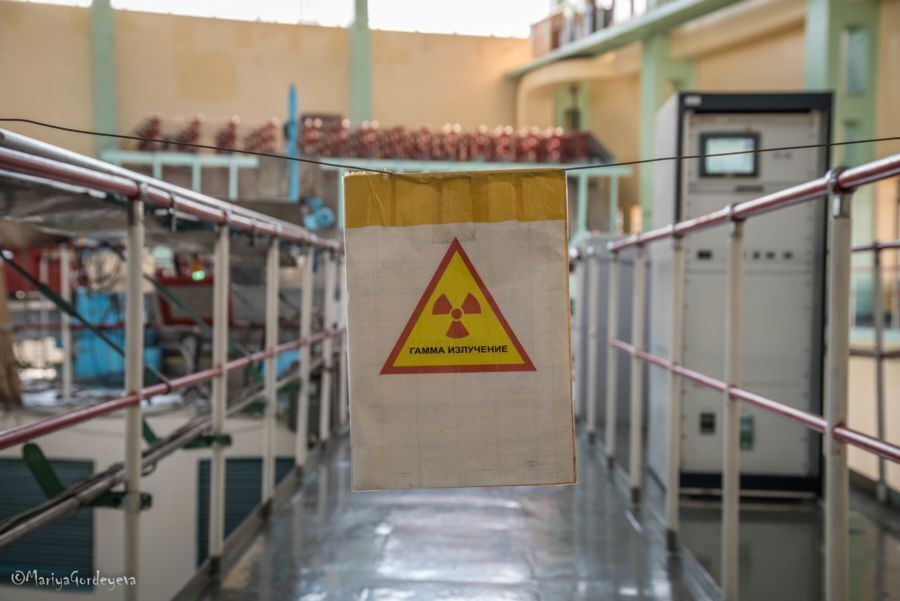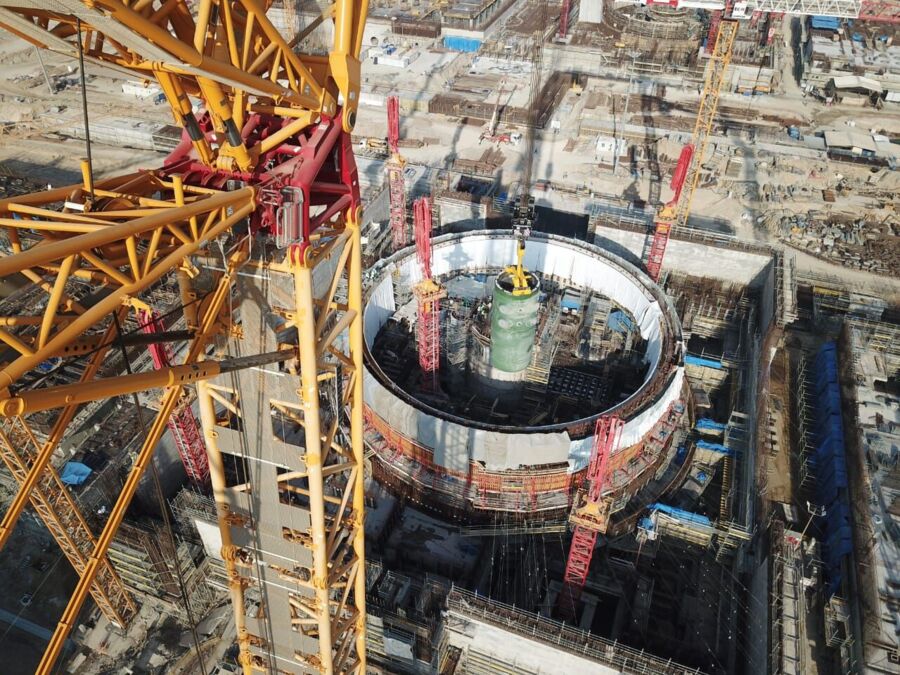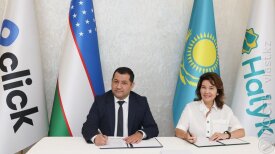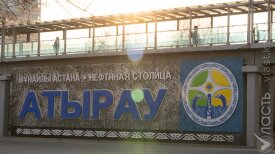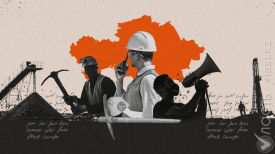Authorities in Kazakhstan revived the idea of building a nuclear power plant, a topic that has made headlines in the country for the past three decades, so far without success.
Vlast spoke with several experts to assess the latest proposals, which came this summer directly from President Kassym-Jomart Tokayev, only three years after he said the question of building a nuclear plant should be shelved.
But who will build the power plant? Where and when will it be completed? What strategic objectives can this new source of electricity achieve?
Dauren Aben, an expert on nuclear safety at the Eurasian Research Institute in Almaty, argued that the current geopolitical situation could jeopardize the choice of Russia as the most likely partner for technology transfer and construction.
“Kazakhstan will probably choose an ideal combination of price and quality. And it was clear to everyone that Russia will build the power plant. Russia is not just our neighbor and closest ally, we were also part of the Soviet nuclear energy complex. But the fact that Russia, a leading member of the IAEA (the International Atomic Energy Agency), led an attack on a nuclear civilian infrastructure in Ukraine, at Zaporizhzhia, showed an irresponsible behavior, to put it mildly,” Aben told Vlast.
Kazakhstan’s authorities were in negotiations with six potential suppliers of nuclear technology this year. Two of the companies - NuScale Power from the US and the American-Japanese GE-Hitachi venture - were dropped from the list in June, because their proposed reactors have not yet been tested. Rosatom (Russia), EDF (France), KHNP (Korea), and CNNC (China) remain in the shortlist.
The Specter of Chernobyl
Dmitriy Kalmykov, a specialist on radiation threats who works at the Karaganda Regional Ecological Museum, said he opposed the construction of a nuclear power plant.
“From the standpoint of the environment, nuclear energy is cleaner than coal, oil, or gas. But catastrophic accidents cannot be ruled out. The focus should be on the choice of the supplier: I would prefer a partner that respects its neighbors and does not shell or seize nuclear plants,” Kalmykov said, making an unambiguous reference to Russia’s actions in Ukraine.
Kalmykov, who was among a team of experts that consulted the Soviet government after the Chernobyl disaster in 1986, warned that just one accident would offset all the positive impact of a functioning nuclear plant.
Kalmykov’s worries also focus on the potential environmental impact of the construction of such a plant on Lake Balkhash, one of the country’s largest bodies of water, about 350 kilometers north-west of Almaty.
“This reservoir has no outlet, so if a nuclear accident occurs there, the emissions won’t be washed out and will remain in the lake,” Kalmykov added.
This summer, Tokayev pointed to Ulken, a village on the Balkhash shores, as the place to build the power plant. Ulken had historically been tied to the electricity generation sector for its proximity to the lake and to the country’s industrial and demographic centers.
Furthermore, on June 30, Tokayev suggested to study the ongoing project of the Akkuyu nuclear plant in Turkey, which is being carried out by Russia’s Rosatom.
Local Content and Risks of Corruption
Aben and Kalmykov agreed that the construction of a power plant without the establishment of state-of-the-art educational programs to develop a strong body of local specialists would result in yet another dynamic of dependency on foreign expertise.
“Specialists with at least a decade of experience at nuclear power plants should be the ones in charge. Fresh graduates should not be responsible for the control room,” Kalmykov said.
Kairat Kuterbekov, a nuclear physicist, added that the expertise should be based locally.
“Russian officials say that their experts can develop and work a future nuclear power plant in Kazakhstan on a rotational basis. I believe this is a completely crazy idea. Power plants are not oil fields,” Kuterbekov told Vlast.
The experts also worry about corruption, which is often tied to large construction projects in Kazakhstan. The average cost of a nuclear power plant is around $7 to $12 billion, according to Aben, and little has been said regarding the financial feasibility of the project.
“Will it be a loan or a co-financing, plus our money from the National Fund? We still have the same old bureaucracy and these people will try to get something from such projects. The ultimate risk is that its completion could be delayed,” Aben concluded.
The geographic configuration of the country makes it wasteful to build large plants and then transport electricity across hundreds of kilometers of power lines, according to Aben.
“At delivery and distribution, our transmission losses reach around 50% in some cases (ed. for comparison, in the US transmission losses amount to around 5%). There are several alternative options to make up for this shortfall,” argued Aben.
A nuclear power plant takes 10-15 years to be built, but there are better short-term solutions, says Kalmykov.
“A nuclear power plant will not help in the short term. We must find a quicker solution to install renewable energy sources such as solar and wind,” Kalmykov echoed.
Another referendum?
In August, Zhandos Nurmaganbetov, vice minister of energy, said a second nuclear power plant could be built along the Irtysh River, to the north, near the city of Kurchatov.
Starting a conversation about a second power plant without having made a final decision about the first one seems odd, according to Kalmykov, who argued: “Sometimes I get the impression that these declarations are carefully calculated, so that the government can later backtrack creating an illusion of having made some concessions to the people, should the public opinion be against.”
While in 2019 Tokayev even went as far as proposing a referendum on whether to build Kazakhstan’s first nuclear power plant, the high-level conversation this year has not foreseen a public debate.
Experts say that a referendum could only be beneficial if the public is well informed and the construction project’s parameters are clear.
This article was originally published in Russian. This is an edited version.
Поддержите журналистику, которой доверяют.
